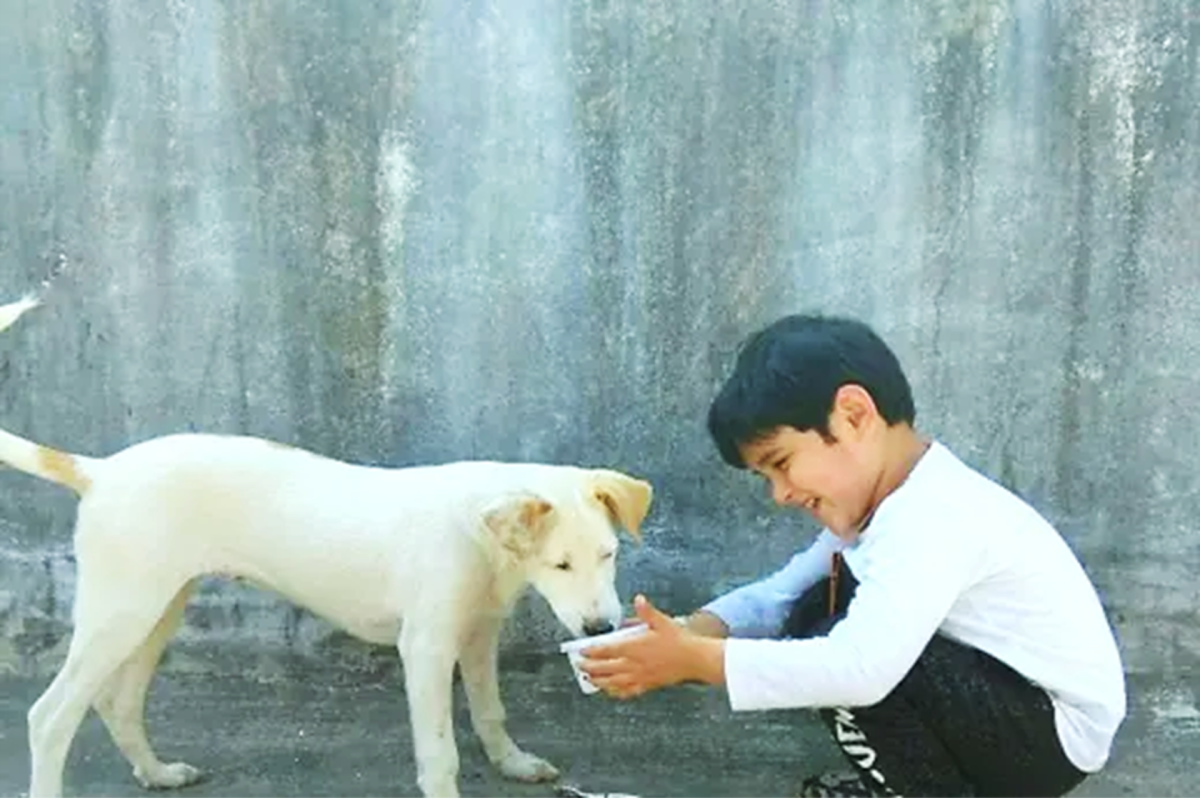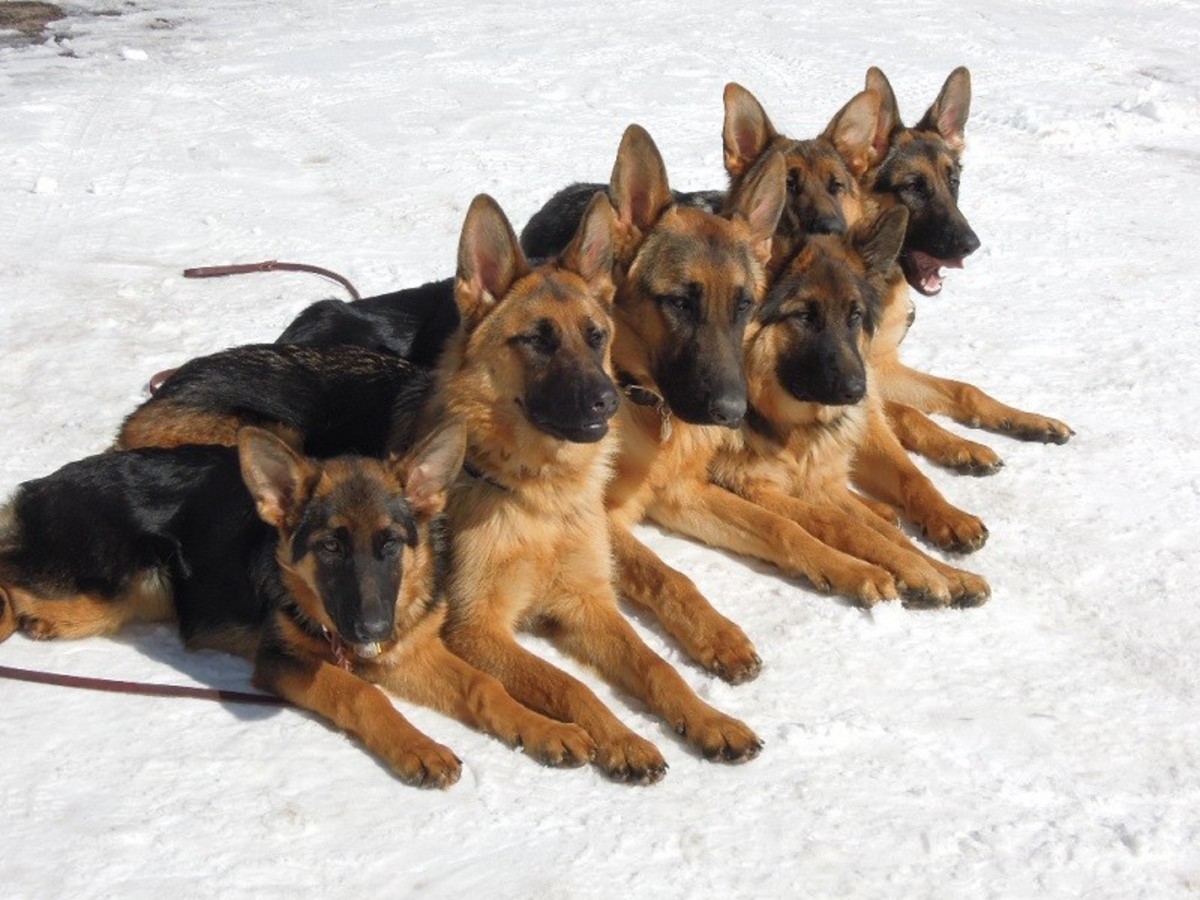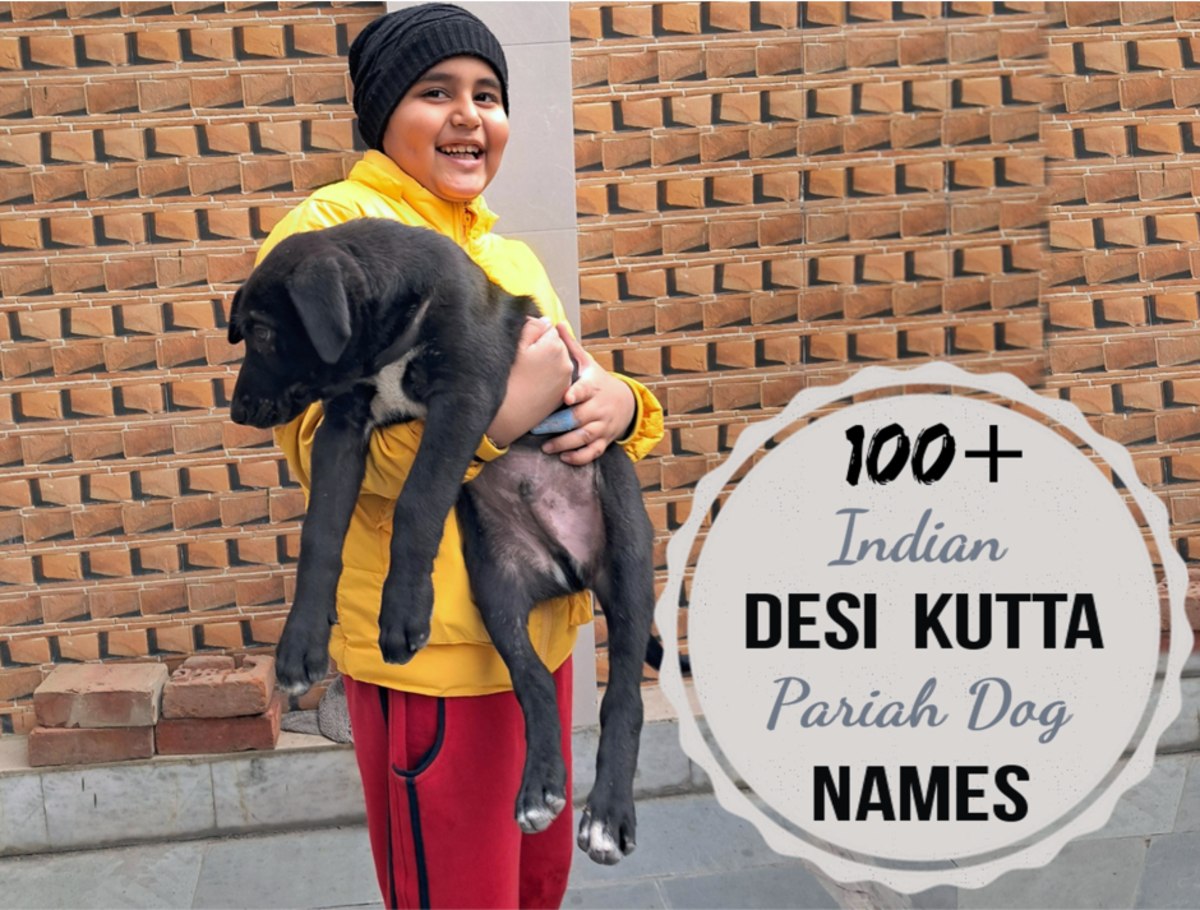How to Choose the Right Dog for You
Before you choose a dog
Choosing a purebred dog
Do your research. Find out about various types of breeds before making a choice. One of the best things you can do is to go to a dog show. Here, you can see various types of dogs and speak directly to breeders.
Make sure the breed you choose fits your lifestyle. For example, if you're a couch potato, a rambunctious Border Collie is not the dog for you.
Be sure to get a dog from a reputable breeder. Your local kennel club will be able to give you a list.
Consider a breed-rescue group. You can adopt an older purebred dog from one of these groups. Call your local animal shelter or veterinarian's office for information on contacting these organizations.
Choosing a mutt
Consider a shelter dog. Animal shelters offer a wealth of animals in need of loving homes. If you choose and older dog, you will be getting a pet that is probably already housebroken and may have had obedience training.
Mixed breed dogs generally do not have the genetic problems often associated with purebred animals.
Best of all, you'll be saving a life!
Reality check before you decide to get a dog
Keep these points in mind before making a committment:
Committment is the operative word here. You are making a committment to a living, breathing creature, not simply buying an accessory for your home.
Almost guaranteed you will experience the following at some point:
Cleaning up dog poop or pee off your carpet. Even pets that are housebroken can have accidents if they're sick or elderly.
Lots of pet hair and dust from dander. You'll need to keep the vacuum cleaner handy.
Bills - for the veterinarian, for food, dog licenses, treats, toys, kenneling when you go away.
A favorite book or pair of shoes chewed up and left for you in the middle of the living room.
Trash cans rifled through.
Annoying nighttime barking.
Muddy footprints across your clean kitchen floor.
Holes dug in your yard and flower beds.
Can you handle it? Be absolutely sure that you can before committing to a dog (or any pet for that matter). Nothing is more heartbreaking than a dog abandoned at a shelter because the owner did not realize the time and effort it would take to be a responsible pet owner.
A basic list of things you'll need for your new dog:
Sturdy dishes for food and water
Dog food
Puppy treats
A collar
A leash (remember, a puppy must be trained to walk on a leash, he won't know what to do automatically!)
A "doggie-bed", or an old blanket for a bed
A crate
A grooming brush
Lots of love and patience
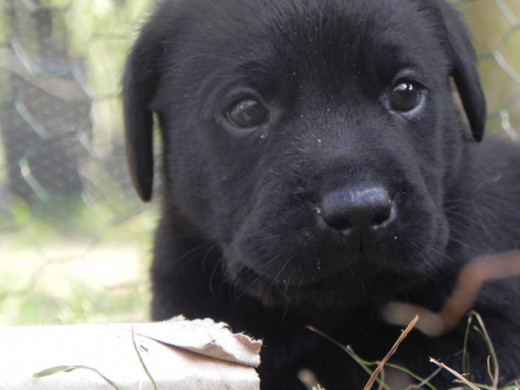
Choosing a puppy
You've decided to take the plunge. You've brought home your new puppy. Now what? Here are some things to keep in mind:
Ask, ask, ask! Talk to the breeder. Talk to your vet. Talk to your friends who own dogs. Find out all you can about your puppy and what you can expect when you take him home.
Be sure to stick with the same brand of food your puppy was eating when you got him. If you want to switch, do so gradually or you could end up giving your puppy diarrhea.
Puppies can benefit from a little plain or vanilla-flavored yogurt in their food. The live cultures aid digestion. Don't give a puppy regular milk or yogurt with fruit in it, or he'll end up with an upset stomach.
Make sure you take him to the vet and keep up-to-date on his vaccinations and check-ups.
To housebreak a puppy, DO NOT hit him or rub his nose in his own waste! Take him outside often (every one or two hours), and praise him effusively when he does his business. When you catch him peeing on the rug, say "NO" in a firm voice, scoop him up (he'll usually stop peeing when you pick him up) and put him outside. When he finishes his business outside, praise him. Remember, dogs housebreak as individually as kids potty-train. We housebroke our male dog in one week with this method, but our female took about a month.
DO NOT expect a young puppy to be able to hold his bladder all day long. Seven week old puppies (the youngest age most breeders will let you take a puppy home) should be taken out every one or two hours, and right after they eat. If you're not going to get up all through the night to take your puppy out, or if you work all day, put him somewhere where he has access to newspapers where he can relieve himself. Resign yourself to cleaning up after your puppy until he is old enough to hold his waste for more than a few hours.
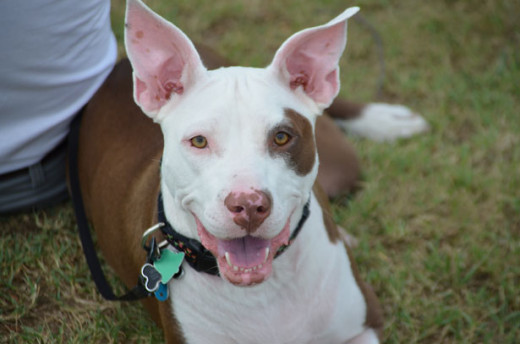
Adopting an older dog
Adopting an older dog from a shelter or breed rescue group can be wonderfully rewarding. In many cases, you've not only gained a friend, you've saved a life. Older dogs are usually housebroken and often obedience trained, saving you the time and effort.
Be sure to find out all you can about an older animal before you decide to adopt him. Is he used to young children? Other pets? Is he very active? Is he a couch potato?
Choose a dog that fits with your lifestyle.
Be sure to feed him the same food he's been used to. If you switch foods, do so gradually to avoid stomach upset.
Give an older dog time to get used to your family and your routine. Establish a routine for feeding, exercising him, etc. and stick to it.
Take him to your veterinarian for a check-up, and shots if needed.
Be sure to get a dog license and an ID tag for his collar.
When putting him out in your fenced yard, or tying him out for the first few times, keep a close eye on him. Our Shepherds' yard is enclosed by a four-foot high fence that they are perfectly content to stay inside. But when we had a young huskey (half the size of the Shepherds) as a guest, he jumped that fence every time we turned around! Had we kept him, we would have had to raise our fence by quite a few feet!
Give him lots of love and patience.
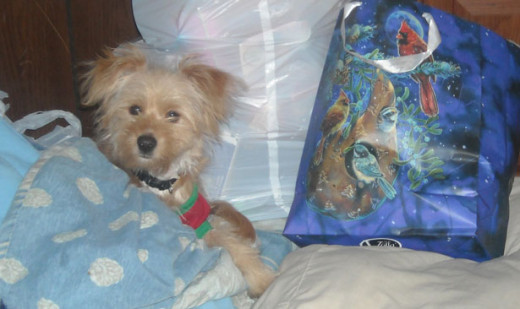
Being a responsible dog owner
Things to think about:
Always keep your dog up-to-date on vaccinations and check-ups
Feed your dog a good quality dog food
Be sure he always has a supply of fresh, clean water
Don't overfeed your dog or give him too much "junk." Obesity in pets is just as dangerous as it is in humans. It's always better for your dog to be a little too thin than too fat. If you can't feel his ribs when you run your hands over his flanks, he's too fat.
Keep your dog groomed and his nails clipped. Don't bathe a dog too often as it could dry out his skin. And you don't need to use expensive dog shampoo - just use whatever "people" shampoo you have around the house.
Get a dog license and a collar tag with your name and address on it. Consider getting your dog a tattoo or an "Identi-chip" - these will greatly increase your chances of his return should he run off and get lost.
Do yourself and your dog a favor and enroll him in obedience classes. Not only will you both learn valuable lessons, you will socialize your dog and meet other interesting dog-owners as well.
Socialize your dog, especially a puppy. Introduce him to all sorts of people and situations. Just be cautious in bringing other animals around a very young puppy that has not yet had all his shots.
Please, please, please don't keep your dog tied or fenced outside all the time. A dog is a social animal and you and your family are his "pack." Besides, where is the pleasure in owning a pet you hardly ever bother with?
Always, always clean up after your dog on walks or in the park. Numerous park privileges have been denied responsible pet owners because of the careless actions of others. Don't let this be you!
Crate training a dog
Crate training a dog is a good idea. It is not cruel (unless done inproperly). The crate is a "safe haven" where your dog can go to sleep, or when he just wants to be left alone. It makes traveling with your dog much easier, and when you have company in your home who don't like dogs, you have a place to put him. It also aids in housebreaking, as a dog will generally not soil his bed.
Make sure the crate you select is large enough for your dog to lie down comfortably. Don't squeeze him into a tiny cage and expect him to be happy.
Put a crate-pad or soft blanket in for your dog to lie down on. Put a few chew-toys in with him if he's going to be in there for awhile.
Start out by putting your puppy in his crate for an hour or so, to get him used to it. You can gradually increase the time, but remember, don't expect a young puppy to be able to stay in a crate all day and hold his waste. When we crate-trained our dogs as puppies, we put the crate with their bedding in it inside a small room with plenty of newspaper on the floor. That way, the puppies could sleep in the crate, and relieve themselves on the newspaper outside.
Take your dog out to relieve himself right after coming out of the crate.
DO NOT send your dog to his crate as punishment. He should associate his crate with comfort, or he will eventually refuse to stay calmly inside.
Teach children not to bother a dog who has gone into his crate - he wants to be left alone!




